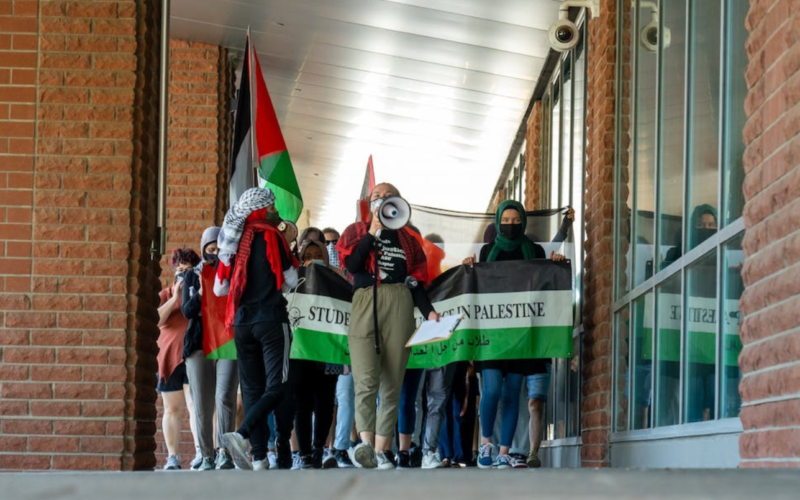As demonstrations in support of the Palestinian cause continue to unfold across the United States, student activists have found themselves grappling with the conundrum of balancing their advocacy with potential professional repercussions. Concerns about potential backlash for expressing their views have grown more pronounced, sparking a debate about the complex interplay between activism and career ambitions.
Concerns about potential backlash for expressing their thoughts have become increasingly prevalent among Palestinian cause supporters. In recent instances, these fears have materialized in high-profile cases, shedding light on the professional risks associated with such activism.
On October 22, a prominent Hollywood agent stepped down from the board of Creative Artists Agency (CAA) following social media comments comparing Israeli actions to “genocide,” which ignited significant backlash.
Recent incidents have underscored the professional risks associated with advocating for the Palestinian cause, heightening the anxieties of those who engage in these protests. Just days later, on October 26, the editor of Artforum magazine was terminated for publishing an open letter from artists calling for an “end to the killing and harming of all civilians.”
While such high-profile incidents gain significant attention, experts suggest that students constitute a substantial portion of those reporting experiences of discrimination and potential professional consequences. This demographic often lacks extensive experience and professional networks, leaving them in a precarious position should they face backlash early in their careers.
As a result, students are confronted with the challenging decision of whether to prioritize their advocacy or their professional aspirations. The need to weigh these considerations can be particularly daunting for graduate students who support the Palestinian cause.
One student, speaking anonymously, expressed the dilemma faced by many, stating, “Any graduate students who support Palestine have to come to a decision on whether or not they’re willing to put their future career on the line before they speak up.”
This predicament is further complicated by the continued presence of anonymous websites such as Canary Mission and the conservative group Accuracy in Media. These platforms persistently publish information about pro-Palestinian students, contributing to the climate of apprehension surrounding activism and professional consequences.
In a broader context, these cases raise fundamental questions about the compatibility of free speech and activism with career ambitions in an environment where public discourse and advocacy are closely scrutinized. The tensions between these elements continue to challenge individuals seeking to navigate the intersection of their beliefs and their professional pursuits.








